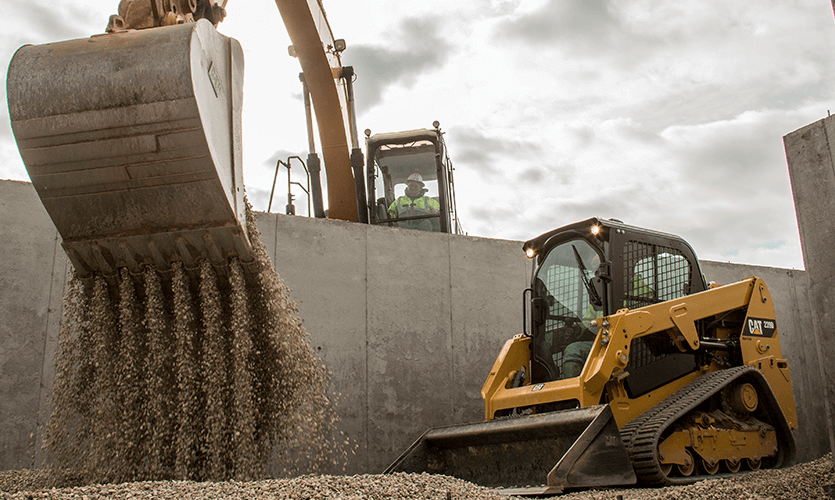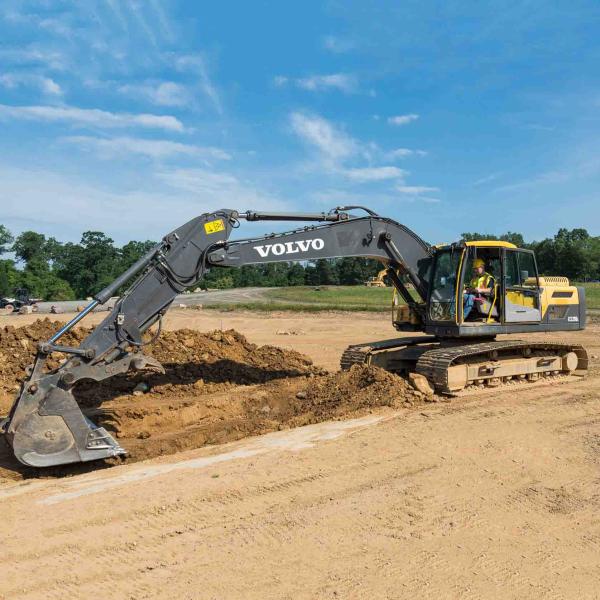Reputable Construction Equipment Rentals: Rent Scissor Lifts, Boom Lifts, and More from Us
Reputable Construction Equipment Rentals: Rent Scissor Lifts, Boom Lifts, and More from Us
Blog Article
Essential Tips for Handling Heavy Tools Rental Agreements and Logistics Properly
Efficiently managing hefty equipment rental arrangements and logistics is important for the success of any project that counts on these resources. A detailed understanding of rental terms, paired with accurate assessment of tools requirements, lays the foundation for favorable negotiations.
Understand Rental Terms
Recognizing rental terms is vital for successful heavy equipment management. Knowledge with the specific terms of a rental arrangement can dramatically impact functional effectiveness and cost-effectiveness. Key elements typically include rental duration, settlement structure, and maintenance obligations. The rental period defines the timeframe for which the devices is rented, affecting budgeting and project timelines. Repayment frameworks often differ, incorporating daily, weekly, or monthly rates, which necessitate accurate estimations to stay clear of unexpected expenses.
Furthermore, it is vital to understand the upkeep commitments laid out in the arrangement. Typically, rental business preserve the devices, however comprehending that is accountable for regular checks and repair work is crucial to protect against functional disturbances. In addition, terms might include stipulations concerning responsibility for damages or burglary, which can have significant economic effects otherwise correctly understood.

Assess Tools Needs
Analyzing equipment requirements is a vital action for any job supervisor aiming to enhance source allotment and improve functional efficiency. This process entails a comprehensive analysis of the project demands, consisting of details tasks, timelines, and the sort of devices essential to achieve desired results.
Begin by recognizing the scope of the project and the tasks that will certainly be executed. Take into consideration factors such as the terrain, the scale of operations, and any type of possible challenges that can affect tools option. Involving with group participants that will certainly run the equipment can give useful understandings into functional needs and choices.

Following, evaluate the capacity and capacities of available devices choices. It is vital to match the right equipment to the jobs at hand, guaranteeing that it can deal with the anticipated work without jeopardizing security or performance.
In addition, consider the rental period and frequency of use. Comprehending these aspects can assist identify whether purchasing or renting out is one of the most cost-efficient remedy. By carrying out a detailed evaluation of equipment demands, task supervisors can make enlightened choices that cause improved performance and lowered functional expenses.
Negotiate Effectively
When the equipment demands are plainly determined, the next action involves reliable negotiation with rental business to safeguard positive terms. A well-prepared negotiation approach is crucial for attaining the best possible deal. Begin by researching numerous rental firms to understand their prices frameworks, supply schedule, and online reputation. This knowledge will equip you during settlements and help you establish realistic assumptions.
When approaching the arrangement table, be clear concerning your needs, including the sort of tools, rental duration, and any added services you may need. This transparency enables rental business to offer customized options that can satisfy your details demands (forklift rental). Do not wait to request discounts, particularly for lasting services or mass orders, as numerous firms agree to provide giving ins to protect larger contracts
These factors can considerably influence the overall cost and must be explicitly outlined in the rental contract. Ensure that all agreed-upon tractor grader terms are recorded in creating to protect against misunderstandings and protect your interests throughout the rental duration.
Coordinate Transport Logistics
Coordinating transport logistics is a critical element of handling heavy devices rental arrangements. Efficient transportation guarantees that equipment is provided on time and in optimum problem, thereby decreasing downtime and enhancing job efficiency. To achieve this, it is vital to create a comprehensive logistics intend that details the whole transportation process from pick-up to distribution.
Begin by assessing the certain transportation requirements based upon the kind and dimension of the devices involved - construction equipment rentals. Involve with trustworthy transport providers that focus on heavy equipment to ensure they possess the required proficiency and devices, such as flatbed vehicles or specialized trailers. Review elements such as weight limits, course constraints, and called for licenses to avoid unforeseen hold-ups
Furthermore, preserve open communication with both the rental business and the transport company to work with routines efficiently. By thoroughly coordinating transportation logistics, you can promote the honesty of your rental contract and assist in smooth job implementation.
Prepare For Upkeep and Support

Moreover, it is important to communicate directly with the rental copyright relating to upkeep obligations. Some agreements might include maintenance as component of the rental service, while in other instances, the obligation might fall on the tenant. Understanding these terms will certainly help go avoid unexpected costs and obligations.
On top of that, having access to technological assistance can be invaluable. Guarantee that the rental business uses 24/7 assistance or an emergency situation contact, permitting quick resolution of any kind of devices problems. Educating your team on proper equipment use and routine checks can also substantially enhance operational performance.
Verdict
In verdict, reliable management of heavy tools rental agreements and logistics hinges on a thorough understanding of rental terms, precise assessment of equipment needs, and experienced negotiation skills. Emphasizing clear interaction with all stakeholders stays crucial in browsing the intricacies of devices service and logistics management.
Effectively taking care of heavy tools rental arrangements and logistics is vital for the success of any kind of project that counts on these sources. By completely assessing and comprehending these rental terms, businesses can make enlightened decisions, alleviate threats, and ensure that their heavy devices monitoring lines up with project objectives and monetary restraints.Collaborating transport logistics is a vital aspect of taking care of hefty equipment rental contracts.In final thought, efficient management of hefty tools rental agreements and logistics hinges on a thorough understanding of rental terms, exact evaluation of equipment requirements, and experienced arrangement abilities. Highlighting clear communication with all stakeholders stays vital in navigating the complexities of equipment service and logistics monitoring.
Report this page